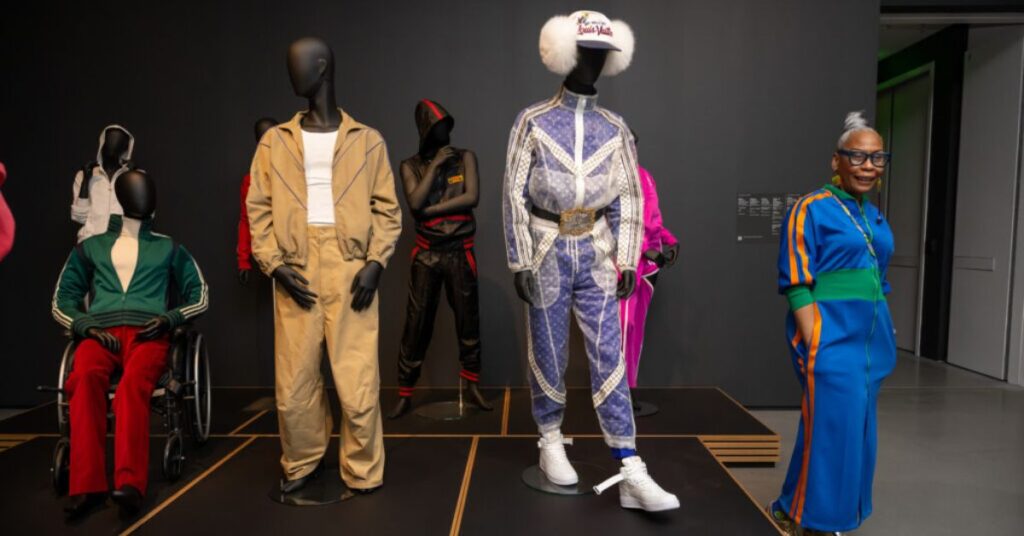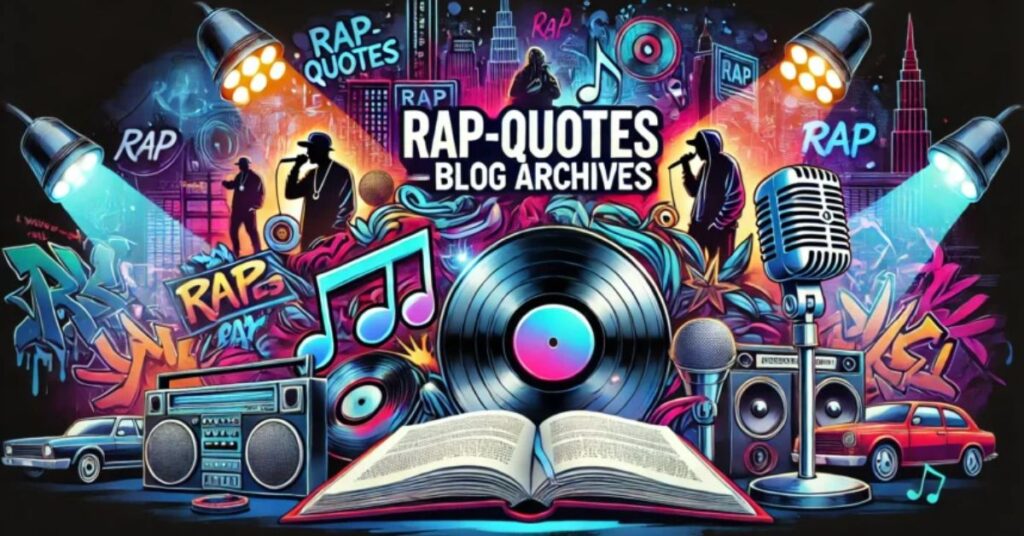Rap-Quotes.com is a digital treasure trove. It houses countless rap lyrics. These quotes span decades. They capture the essence of hip-hop culture. The blog archives are a unique resource. They offer insights into street knowledge. This knowledge shaped the 20th century.
A Treasure Trove of Knowledge
The archives are vast. They contain quotes from countless artists. These range from old school to modern rappers. Influential voices are preserved here. You’ll find words from Tupac and Biggie. Newer artists like Kendrick Lamar are included too. Each quote tells a story. They reflect the times they were written in.
The blog organizes quotes thematically. This makes exploration easy. You can dive into specific topics. Social issues are a common theme. So are personal struggles. The archives showcase rap’s evolution. They highlight how the genre has grown. Rap has become a powerful cultural force.
Themes Explored in the Archives
Rap quotes cover diverse subjects. The archives reflect this diversity. Social justice is a recurring theme. Many rappers speak out against inequality. They address racial issues head-on. These quotes serve as a call to action.
Personal growth is another key theme. Rappers share their journeys. They talk about overcoming obstacles. These stories inspire listeners. They show that change is possible. Self-expression is celebrated in many quotes. Rappers encourage authenticity. They promote being true to oneself.
Love and relationships feature prominently. Rappers explore complex emotions. They discuss heartbreak and joy. These quotes resonate with many. They capture universal experiences. Street life is often depicted. Rappers share raw, unfiltered views. They paint vivid pictures of urban environments.
The Impact of the Archives on Hip-Hop Culture

The Rap-Quotes.com archives are more than a collection. They’re a cultural institution. They preserve hip-hop history. Researchers use them as a resource. Fans explore them for inspiration. The archives show rap’s cultural impact. They highlight its influence on language. Popular culture has been shaped by these quotes.
The archives serve an educational purpose. They teach about social issues. They offer historical context. Schools use them in curriculum. Students learn about poetry through rap. The archives bridge generations. They connect old and new hip-hop fans. This fosters a sense of continuity. It keeps the culture alive and growing.
Connecting Generations
Rap-Quotes.com brings people together. Older fans revisit classics. Younger listeners discover gems. The archives create dialogue. They spark discussions across age groups. Shared experiences emerge through lyrics. Different generations find common ground. They connect over shared themes.
The archives showcase rap’s evolution. They show how styles have changed. Yet, they also reveal constants. Core messages often remain. This continuity is important. It helps maintain hip-hop’s identity. Cultural legacy is preserved and passed on. New artists build on past foundations. The cycle of influence continues.
Fostering Community Engagement
The blog encourages interaction. Fans can comment on quotes. They share interpretations. Debates arise over meanings. This engagement builds community. It keeps the culture vibrant. Critical thinking is promoted. Users analyze lyrics deeply. They consider multiple perspectives.
Events are organized around the archives. Book clubs discuss rap-inspired literature. Poetry slams incorporate famous lines. These activities bring fans together. They create real-world connections. Artistic expression is encouraged. The archives inspire new creations. They fuel the next generation of artists.
The Significance of Rap Quotes
Rap quotes are more than lyrics. They’re cultural artifacts. They capture moments in time. These quotes reflect societal changes. They document struggles and triumphs. Poetic expression reaches new heights in rap. Complex ideas are conveyed succinctly. Wordplay and rhythm create impact.
The quotes serve multiple purposes. They entertain and educate. They provoke thought and emotion. Many become life mottos. Fans tattoo them on their bodies. Others use them as daily affirmations. The power of these words is undeniable. They shape identities and worldviews.
Highlights from Rap-Quotes.com Blog Archives

The blog features curated collections. These highlight specific themes or artists. “Quotes of the Day” are popular. They offer daily inspiration. Thematic series explore topics in depth. “Women in Rap” showcases female voices. “Social Justice Bars” compiles activist lyrics.
User-generated content adds value. Fans submit their favorite quotes. They share personal interpretations. This creates a dynamic, evolving archive. It reflects the community’s interests. Collaborative features encourage participation. Users can create playlists of quotes. They can share these with others.
Read As:Mastering the Denso 447220-4771 for Optimal Performance
Evolution of Rap Quotes
The archives trace rap’s journey. Early quotes focus on partying. They celebrate urban life. As the genre matured, topics expanded. Social commentary became prevalent. Personal narratives gained importance. Rappers shared intimate stories. This evolution is clearly visible in the archives.
Linguistic changes are documented. Slang evolves over time. New terms enter the lexicon. The archives track these shifts. They show how language and culture intertwine. Stylistic innovations are preserved. From simple rhymes to complex wordplay. The growth of rap as an art form is evident.
The Impact of Rap Quotes on Popular Culture
Rap quotes permeate society. They appear in advertisements. Politicians reference them in speeches. Movies and TV shows use them. The archives show this widespread influence. They document how rap shapes language. Cultural crossover is a key theme. Rap’s impact extends far beyond music.
Fashion is heavily influenced. Clothing lines feature rap quotes. Accessories are adorned with lyrics. The archives showcase this trend. They highlight the visual impact of words. Brand collaborations are explored. How companies leverage rap’s cultural capital. The commercialization of hip-hop is documented.
Utilizing Rap Quotes in Daily Life
The archives offer practical applications. Users find quotes for various purposes. Some use them as mantras. Others as social media captions. The blog provides context for usage. It suggests ways to incorporate quotes. Personal development is a focus. How rap wisdom can guide life choices.
Educational resources are available. Teachers use quotes in lessons. Students analyze them in essays. The archives offer study guides. They suggest discussion topics. This academic approach adds depth. It shows rap’s intellectual value. Critical analysis skills are honed. Users learn to dissect complex lyrics.
Conclusion
Rap-Quotes.com’s blog archives are invaluable. They preserve hip-hop’s legacy. The quotes collected here tell a story. It’s a story of struggle, triumph, and growth. These words have shaped generations. They continue to inspire and provoke.
The archives ensure this cultural wealth endures. They keep the spirit of hip-hop alive. For fans, scholars, and curious minds alike. Rap-Quotes.com remains an essential resource. It’s truly the ultimate vault of street knowledge.
Frequently Asked Questions
What is the main purpose of Rap-Quotes.com?
Rap-Quotes.com preserves and shares rap lyrics. It serves as a cultural archive for hip-hop.
How often is the blog updated?
The blog is updated regularly. New quotes are added daily.
Can users contribute to the archives?
Yes, users can submit quotes. They can also share interpretations.
Are the archives used for educational purposes?
Many educators use the archives. They’re a resource for teaching literature and culture.
How far back do the archives go?
The archives cover rap from its origins. They include quotes from the 1970s to present day.

Emma is a seasoned tech expert with 5 years of experience. Her deep knowledge and passion for technology drive our website’s innovative content and solutions, making her an invaluable part of our team.